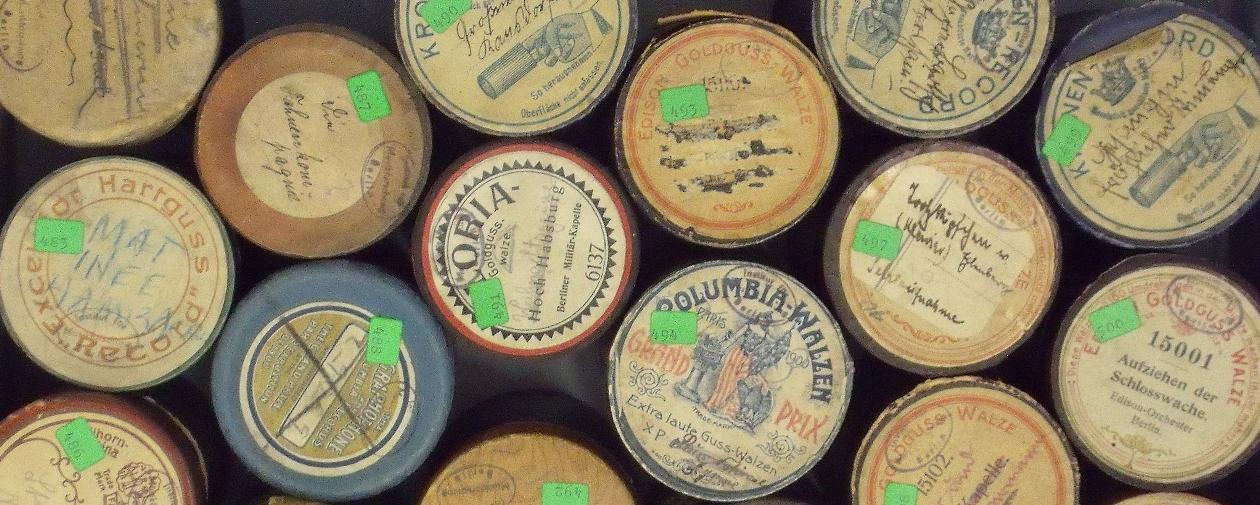Bereichsnavigation
Discology
SIM pursues discology research based on the premise that radio, records and compact discs are not just media for transmitting and storing music but, like musical instruments, are media of music itself.

Discology is concerned with sound recordings as documents for performance and interpretation research, and it approaches this work from an interdisciplinary point of view. In particular, it examines the interrelations between the history of technology, the history of economics and the history of music. In a narrower sense, discology is concerned with sound storage media in general and focuses in particular on commercially produced and reproduced sound recordings as manifestations of cultural ideas, beliefs or viewpoints.
The discological researchers at the SIM have an extensive collection of sound recordings at their disposal, and when necessary, they can play them using the phonographic objects (automata, Edison phonographs, gramophones, tape recording machines, et cetera) held in the collection of the Musikinstrumenten-Museum. They can use the digitization station to have sound recordings in common historical formats transferred to digital media. Moreover, the Institute’s library has copies of the most important discographic reference works as well as a large collection of specialist publications. One example is the Phonographische Zeitschrift (PZ), which, until 1933, was subtitled Fachblatt für die gesamte Musik- und Sprechmaschinen-Industrie (Professional Journal for the Entire Music and Talking Machine Industry). This journal is a unique source of written documents and imagery concerning early twentieth-century phonography. At the initiative of the SIMPK, it was digitized from 2013 to 2014 in collaboration with the Munich Digitization Center of the Bavarian State Library as part of the project Virtual Library of Musicology.
The results of discological research are published in the form of new, annotated editions of old recordings as well as a small exhibition series called Interpret*innenfenster (Performers Brought to Light), which can be found in the library and on our homepage. The series highlights artists of the past who are not commonly viewed as belonging to the canonized mainstream of the history of musical interpretation but should nevertheless not be overlooked in any complete account of their respective eras.
Contact
Carsten Schmidt
Head Librarian and Head of the Division for Musicological Documentation
+49 30 254 81 140

